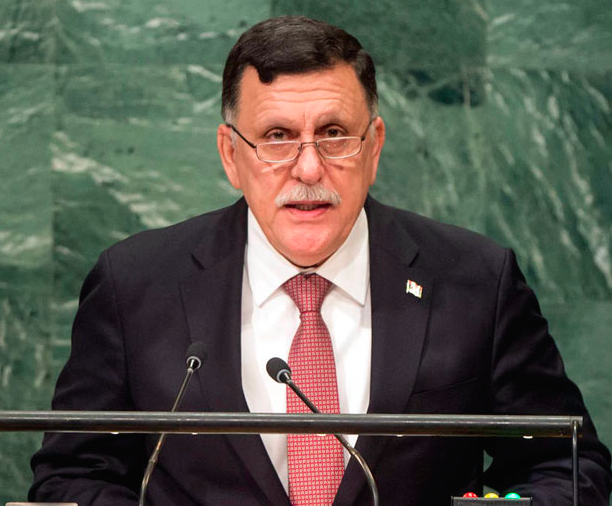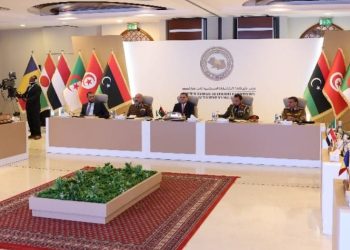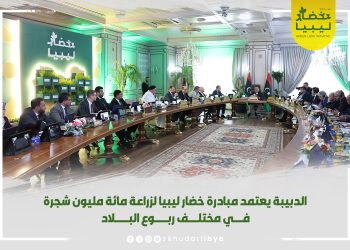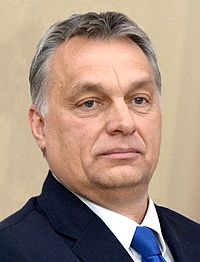By Libya Herald reporters.

Tunis, 24 September 2016:
There has as yet been no response from Khalifa Hafter to Presidency Council chairman Faiez Serraj’s offer of direct talks.
Serraj said on the sidelines of the UN General Assembly that he was willing to talk to anyone if it would help solve Libya’s problems. “There are many obstacles of course and one of them is trying to have a unified army under the control of the political body”.
It is the PC’s control of the armed forces, as set down in the Libyan Political Agreement, which has been the main sticking point with members of the House of Representatives. They have yet to debate and vote on the key amendment to the Constitutional Declaration which would see control of the military pass from parliament to the PC .
As commander-in-chief of the armed forces, Khalifa Hafter, promoted to Field Marshal after the army seized the oil export terminals from the Petroleum Facilities Guard, would see his position cast into doubt.
UNSMIL chief Martin Kobler has said that Hafter should play “a role” in a united Libyan army. It is the size of that role that Hafter, his supporters in parliament and the Thinni government are clearly questioning.
Kobler says that Hafter has rebuffed repeated calls for a meeting. And this week Hafter and HoR president Ageelah Saleh called Kobler a failure and called for him to be fired.
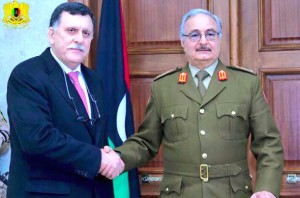
Serraj and Hafter’s first and only known meeting was in January in Marj when the body language as the two men posed for photographers appeared to explain why no communique was issued at the end of their talks.
Serraj had told the UN General Assembly that in order to unify Libya, it was important that there were a separation of powers. While thanking the international community for its support, he also referred to the global freeze on state assets as well as the international arms embargo. He said that in order to fight IS terrorists who aimed to exploit the country’s oil, Libya needed weapons.
“We are aware of the security concerns” he said, “but we are serious about the restoration of security in the country.” He appealed to all Libyans: “Come join us, those of you who believe in a strong State with a strong army that will defend you from any aggressors.”
While in New York, Serraj also had a series of meetings with several international political figures including Russian foreign Minister Sergey Lavrov, Egyptian foreign minister Sameh Shoukry, UAE foreign minister Abdullah bin Zayed Al- Nahyan, NATO Secretary General Jens Stoltenberg and the president of Niger, Mahamadou Issoufou.
All, according to Presidency statments, reassured him of their support. In the case of the Nigerien president, the talks concentrated on the need to secure the border between the two countries and on curbing illegal migration.
Niger is to host the next meeting of Libya’s neighbours which will assess the situation in the country.


